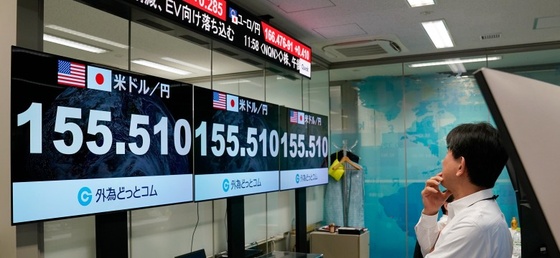[한경에세이] 서비스 神話 영어 원문
Written by Sebastian Arcuri
Head of Personal Financial Services, HSBC Korea
sebastianarcuri@hsbc.com
When I went to university in the US, one of my MBA mates was a Korean student a few years younger than me. She used to draw my attention not for only for being one of the best students in the class but because of her devotion to Korean brands. Among other things, her car, computer, TV, fridge, home appliances, most of her clothes, basically everything was Korean.
In a social function I could not resist the temptation and had to ask her why so much devotion to “Korean made” things. She basically explained to me that there were two reasons. Number one it was for her a good way of feeling closer to home and number two because there were no better articles in the market and she truly believed that she was getting value for money. She also explained to me that only Koreans or people who lived in Korea could understand her reasons.
Many years have gone by since that conversation took place, and I had totally forgotten about this issue until a few weeks ago, when I finished setting up my new vacation property in Singapore. After a quick inspection to the newly decorated apartment, I realized that every single appliance I bought was made by a Korean company. Basically everything, from TV to washing machine, air conditioner, every single appliance in the house was Korean.
So I suddenly remembered my former university mate and somehow understood the meaning of her words. In fact I would probably tell her that, as a foreigner, once you get used to the Korean style and brands you get hooked to them, probably forever!
The reality is that Korean products have come a long way and in a few decades have become leaders in many fields. Today they are synonym of reliability, innovation and value.
This is, among other things, because the Korean industries were exposed to tough competition from the onset. Penetrating mature markets like the US and Europe is not an easy game but Korean companies have demonstrated that they have what it takes to become world leaders and when competing head on with other international companies they are able to win customers big time
Clearly the Korean industry has been very successful in the contemporary history of this country. But can this phenomenal success be replicated in the service sector?
The service sector has somehow been exposed to a different competitive environment as Korea only started to open its economy relatively recently. Having said that, the Korean service sector was put to the test in two major occasions in the last two decades. Korea managed to successfully organize two major global events; The Olympic Games and the World Cup. Especially during the World Cup in 2002 the tourism services had a great opportunity to prove its caliber. As a tourist in those days visiting Korea, I can say that it passed the test with flying colors.
The next big challenge for the service sector in Korea is related to its aspirations of becoming a financial hub for North Asia, thus becoming a financial sector leader in the region.
To start with, Korea has certainly the right ingredients and is going on the right direction to achieve its goal. The financial services sector is well developed: we certainly have a well-educated and talented workforce, great infrastructure, a strategic geographic location and clear efforts are being made from many areas of society to achieve this goal.
Some people think that the lack of English language skills could be a problem. My view is that, while this is obviously an issue that has to be monitored, it appears that the new generations are coming into the workforce equipped with a reasonable command of the English language and Koreans are becoming more English savvy in general so the average level of English in Korea will continue improving in the years to come.
In the last thirty years, the Korean industries taught the world a lesson on how to become successful “overnight”. This is because once Koreans put their minds and harts in a project they relentlessly advance until the goal is achieved.
Becoming a financial centre for North Asia is a big challenge for the service sector but with the same passion and determination, Korea can achieve this goal. Perhaps it will be this time the Korean service sector which will teach the world a lesson on how to become successful “overnight”.
-
기사 스크랩
-
공유
-
프린트
![[한경에세이] 소상공인 지원기관이 될래요](https://img.hankyung.com/photo/202404/07.35991182.3.jpg)
![[다산칼럼] 2024년 주주총회가 남긴 성과와 과제](https://img.hankyung.com/photo/202404/07.34201783.3.jpg)
![[차장 칼럼] GTX가 '교통혁명' 되기 위한 조건](https://img.hankyung.com/photo/202404/07.30302760.3.jpg)











![[오늘의 arte] 독자 리뷰 : 당신의 미술 취향은 무엇인가요](https://timg.hankyung.com/t/560x0/photo/202404/AA.36523699.3.jpg)